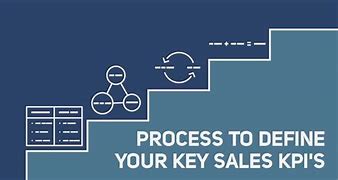In sales, hustling is a commonly used word. Traditionally, when a person called someone a hustler, it meant that they were a con artist. However, in the current business climate, hustling means something completely different and is associated with having a very strong work ethic.
To hustle means to work as hard as you can and to do whatever it takes to achieve your goal. While this does come with some drawbacks, hustling can bring a lot of benefits to your sales performance as well.
The Pros of Hustling
Hustling not only means to strive for excellence but also to strive for what you want in life. Those who act passively rarely get all that they want out of life as they simply coast and do the best they can off as little effort as possible.
But those who put their passion into what they do and give it their all, even if they find the work itself to be a struggle, will always achieve great things. This applies to all those sales professionals who meticulously research a prospect before the first call and work long hours to ensure their customers are happy after the sale.
It has been said that sales is the highest paid tough job or the lowest paid easy job you will ever have. Unfortunately, the truth is a lot of sales professionals are happy enough with what they are making and don’t want to go the extra mile to make more money.
However, those who think that way tend not to earn very much, and their possibility of upward mobility is severely limited as a result. Those who work as hard as they can get noticed and are rewarded for their efforts both financially and with better career opportunities.
Admittedly, this isn’t always the case and there are those fortunate outliers who have a lot of sales literally fall into their laps. However, they are playing a game of chance while those who keep their nose to the grindstone are always seen as valuable and will be successful at a much higher rate.
Incidentally, being a hustler includes having the drive to go find another job that pays better and is more fulfilling than the one you’re in if it’s not checking all the boxes for you.
Sales expert Anthony Iannarino once wrote, “You act with a sense of purpose, and meaning, and mission, and urgency, and you run and grab what you want because you’re running out of time.” Life is short and spending that time waiting for the workday to end and doing nothing to make your life better will only diminish you.
The Cons of Hustling
With all of that said, there can be a fine line between being someone who hustles and a workaholic. It is important to have a work-life balance and not overwork yourself.
Keeping your nose to the grindstone too long every day can lead to some fairly serious physical and mental health issues. Exhaustion and stress can have hugely negative effects of your body leading you to miss more work and possibly even die younger. This is a significant problem in countries like Japan which has a very unbalance work-life culture.
In addition, exhausting yourself mentally can cause burnout, which isn’t something you can just power through since it usually makes your overall work worse. Remember, it’s okay to take breaks and let yourself rest; not only will you feel better, but your work will be better, too.
Martin O’Donnell, a composer for the video game industry, once described how employees should be treated, “Be nice to the goose.” This advice for bosses and managers who push their teams too hard can also be applied on a personal level.
Just as Aesop’s goose would stop laying golden eggs when mistreated, your mind and body will stop performing at a high level if you don’t look after them.
Conclusion:
It is important to keep in mind that while it is critical to hustle if you hope to increase your chances of getting everything you want in life, it is extremely important that you are strategic about it.
Learning to hustle and to work as hard as you can to achieve a goal is the number one way to be successful in today’s business world. Just be sure you don’t literally work yourself to death in the process.








